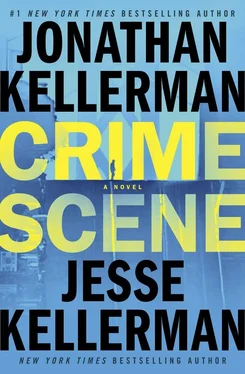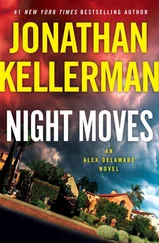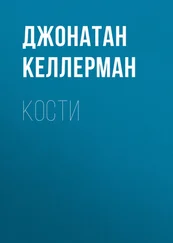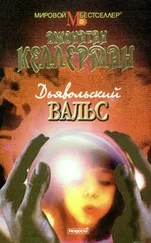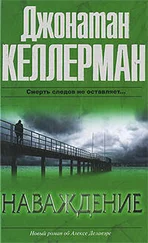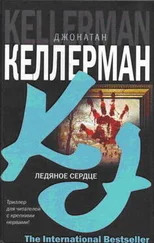She was weeping. “Please tell me it wasn’t as bad as I think.”
The scream of the freeway overhead; a body unable to hold its own skin.
I said, “Not that bad.”
“You’re telling stories,” she said. “It’s okay. I appreciate that. I asked you to.”
The last dozen boxes at the storage unit contained nothing that pointed me toward Julian Triplett. I locked up and drove home.
Unsure if I’d need to make this call, I’d waited. Now I didn’t think I had a choice.
“Hey,” Tatiana said.
“Hey.” Silence. “Got a second?”
“Sure.”
“I’ve been through the boxes.”
“Anything?”
“Sort of,” I said. “Can I ask you: those last few, that you left at your father’s house?”
“You want to look at them,” she said.
“If possible,” I said.
“I was going to get to them eventually,” she said defensively. “Every time I come near them my eyes water.”
“Right,” I said. “What do you say?”
“I’m not around to let you in,” she said.
“Later this week, then.”
“No. I mean I’m not around around.”
A shroud of formality covered her tone.
“Okay,” I said.
Relenting a little, she said, “I can send you the key, if you’d like.”
“If you don’t mind.”
If this. If that. So tactful, we were.
“You’ll need the alarm code, too,” she said.
“Please.”
She gave it to me: 7-9-7-8. I thought back to when I was having trouble unlocking Rennert’s iPhone. I couldn’t remember if that was one of the combinations she’d suggested. Probably would’ve been worth trying. I asked her what it meant.
“I don’t know, actually,” she said. She sounded miffed to admit it.
“Thanks,” I said. “I’ll try not to disturb you again.”
“Clay?” she said. “Let me know what you find?”
“I will if you want me to,” I said. “Are you sure you do?”
A long silence.
She said, “My father obviously believed he was doing the right thing. I don’t know his reasons, but I have to trust he had them. He was a good man.”
She expected an answer.
“From what I’ve seen,” I said, “yes, he was.”
“People don’t appreciate that. They never did. They know one thing about him and they think they know everything. But it’s not that simple.”
“Nobody is,” I said.
An urge welled up inside me: to ask when she’d be back.
“I’ll put the key in the mail tomorrow,” she said.
“Thank you,” I said.
“Take care, Clay,” she said.
The key arrived four days later, postmarked Portland, OR.
I was still laughing as I got into my car and drove over to Berkeley.
Three boxes, mildewed and spongy, tucked in the corner of the basement, caged in by a shelving unit.
We’d had to work to get them out, which meant that Rennert had had to work to put them in. A precaution.
Months drying out in the service porch had helped: they no longer stank so bad. The black stains in the cardboard had faded to a dull greenish gray, shedding a powdery residue that came off on my hands as I lifted the lid off box number one.
It was a quarter full, the contents not sitting high enough to escape the annual flooding. They appeared to be some sort of manuscript. The top few pages were legible, but only just: water damage had caused them to curl and shrivel, the printer ink bleeding, leaving teasing fragments.
never met J before
process of rehabilitation
coinciding with my own interests as a psychologist
arrogance, which prevented me
an alternative explanation presented itself
Beyond page five, the paper had disintegrated, fusing into a single moldering brick, like crude papier-mâché. Trying to separate them only worsened the damage.
The second box was in slightly better shape. The pages had been folded and unfolded, giving them some loft, and they weren’t packed down, leaving the uppermost portion unscathed, sixty or seventy pages in total.
Letters, written in a tight, uniform hand.
dear doctor rennert thank you for comming to see me
Lydia Delavigne had commented disparagingly on Triplett’s poor spelling and grammar. Considering his learning difficulties and the fact that he’d never finished ninth grade, I thought he got by pretty well.
The neatness of the script struck me as particularly apt.
Big hands doing delicate work.
None of the letters bore a date, and most were brief, one or two lines on a short list of concrete topics: the weather, the food, a stomach ailment that appeared to drag on.
If Triplett ever expressed emotion, it was gratitude for Rennert’s visits — simple gratitude, ritualistic, the kind a young child offers when prompted.
The crime, the victim, Nicholas Linstad: none of that came up.
It would be easy to read into the tone a lack of empathy. A low-functioning psychopath, unable to grasp or care about the consequences of his behavior.
I took away a different message. I heard a disoriented mind, brimming with anxiety and loneliness, clinging hungrily to anything consistent.
Two pieces of toast for “brekfist” one day; three the next.
His way of marking time, like scratch marks on a cell wall.
The sheer volume of the correspondence suggested the depth of the connection between Walter Rennert and the boy he’d helped put away. Writing must’ve presented a serious challenge to Triplett.
Yet he’d persisted, seeking to communicate, taking comfort in repetition.
He told Dr. Rennert. Who else could he tell?
I moved on to the third box.
Atop the pile sat a loose sheaf of yellowed newspaper clippings, speckled with mold. The murder; the trial. I skimmed them. Nothing I didn’t already know.
Lastly, a pair of plastic shopping bags that rattled when I picked them up. I unknotted the handles and saw a jumble of microcassette tapes, cases dated in blue or black ink.
I gathered up the bags, along with the surviving letters.
Stopping in the foyer to reset the alarm, I glanced at the spot on the tiles where Walter Rennert’s body had lain. Another small patch of my world marked by death, a shadow invisible to nearly everyone except me.
The clerk at Radio Shack tried to discourage me from buying a microcassette player.
“We don’t even make those anymore,” he said.
“The website says you have one in stock.”
He trudged off, returning after a while with a scratched clamshell case.
He scanned it. “Two eighty-four sixty-nine.”
“That can’t be right.”
“ ’Swhat I mean. Shit’s discontinued. Get a digital recorder, they’re like forty bucks.”
I couldn’t be sure that the tapes were good: the water might have ruined them. But the plastic bags gave me hope.
“What’s your return policy?” I asked.
“Thirty days.”
I handed him my debit card. “Receipt, please.”
At home I brewed a pot of coffee and set myself up at the kitchen table with notepad, pen, and my new, expensive, semi-vintage microcassette player.
I sifted the tapes, arranging them in chronological order. The oldest went back to March 2006 — shortly after Julian Triplett disappeared. Fifty-seven in all, roughly one a month. But not evenly spaced out: the first few bunched together weekly. Then monthly, bimonthly.
Seven months separated the second-to-last tape from the final one, in January 2011.
I put in the first tape and rewound to the beginning.
Expecting something along the lines of an audio letter — garbled updates from Triplett, sent to reassure Rennert — I sat up at the first voice I heard.
A woman, crystal clear.
Читать дальше
